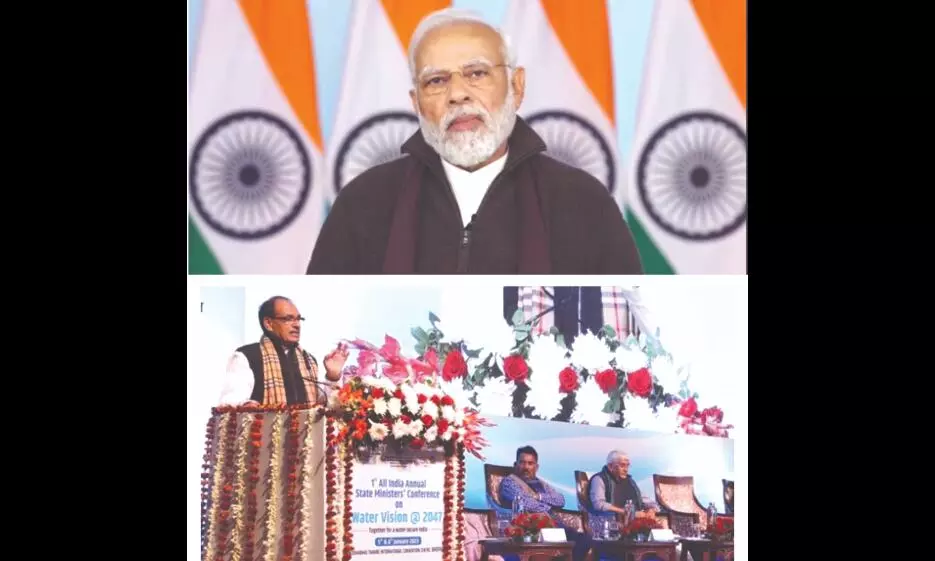PM says govt efforts not enough, people’s participation required for water conservation

New Delhi: Prime Minister Narendra Modi on Thursday underlined the importance of people’s participation in water conservation and said attempts by governments’ alone cannot be successful.
“When the public is associated with a campaign, they also get to know the seriousness of the work. Due to this, a sense of ownership also comes in the public towards any scheme or campaign,” Modi said in his virtual address at the first national conference of water ministers from states in Bhopal.
Water, he said, should be a subject of cooperation, collaboration and coordination among states and asked them to plan in advance in view of the fast pace of urbanisation.
The remarks assume significance as disputes over water sharing have lingered for decades between some states.
The PM said the subject of water comes under the control of states under our constitutional system and it is their efforts that will go a long way in achieving the collective goals of the country.
“Water Vision@2047 is an important dimension of the journey of Amrit Kaal for the next 25 years,” Modi said.
The maximum work under the MGNREGA scheme should be done on water, he said, calling for spreading awareness among people for its conservation.
Water is most consumed in sectors such as industry and farming, and awareness should be spread among them, he said while advocating crop diversity and natural farming.
Noting that success does not come from the efforts of the government alone, the prime minister drew attention to the role of public and social organisations and civil societies and asked for their maximum participation in campaigns related to water conservation.
He went on to explain that promoting public participation does not reduce the accountability of the government and does not mean putting all the responsibility on the people.
The biggest advantage of public participation is public awareness about efforts being put into a campaign and the money being spent, Modi said.
“When people joined the Swachh Bharat Abhiyan, a consciousness was awakened in the public as well,” he said.
Crediting the people of India for their efforts, Modi said the government took up many initiatives, including collecting resources to remove filth, building various water treatment plants and constructing toilets, but success was ensured when the public decided there should be no dirt at all.
The PM emphasised that all governments should work like a system with constant interaction and dialogue between different ministries of state governments, adding that planning will get help if these departments have information and data related to each other.
Meanwhile, West Bengal Water Resource Investigation and Development Minister, Manas Ranjan Bhunia said, “Water is the source of life. As we all know, all great civilisations started near major rivers. I believe that over the years we have taken this precious resource for granted. We have been blessed with substantive water reserves both in the form of groundwater and surface water on this planet earth. However, it seems that not enough attention has been given to its sustainable use. Indeed, the impact of climate change has made our task much more challenging. I am very happy that we are all here today to discuss and build a strategy for its management for the next twenty-five years – a long-term vision.”



